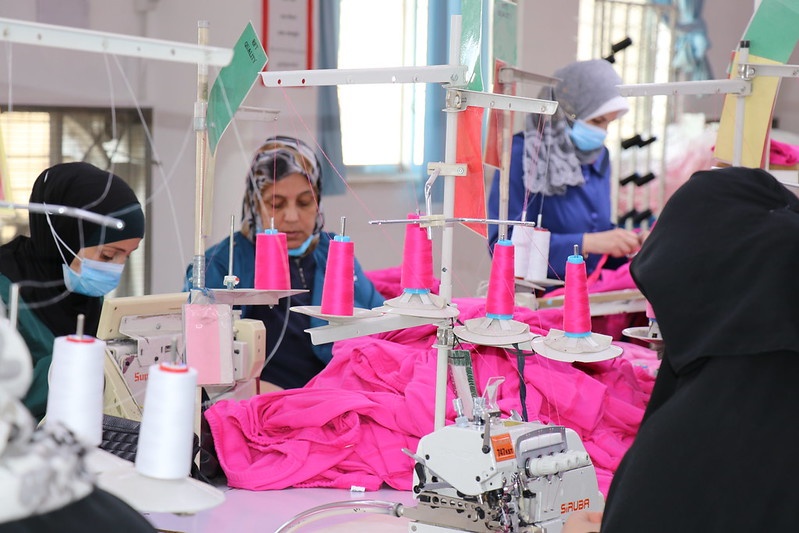29 September, 2022IndustriALL affiliates in Morocco, Jordan, Tunisia, Egypt and Palestine have launched a campaign to fight for social protection and for better health and safety standards in the region’s textile, garment and shoe factories.
Taking up the campaign Garment workers need safe factories, textile unions in MENA are joining the global call for safe workplaces. In October 2021, IndustriALL Global Union negotiated the International Accord on Health and Safety in the Textile and Garment Industry, which now has over 180 global brands and retailers’ signatories. In March this year, an ILO Code of Practice for Health and Safety was adopted for the sector.
"Occupational health and safety is a significant risk in the TGSL sector, especially for women who bear the weight of housework and raising children in addition to the workload. Women’s engagement in union work is a show of persistence and perseverance. Union work in the private sector is difficult, especially if employers do not respect union work,"
says Noureddine Taboubi, UGTT general secretary Tunisia.
"Our ability to improve safety and health depends on our organizing power. We in Tunisia are working on launching a large organizing campaign at the beginning of next year which will focus on safety and health,”
says Habib Hazami, general secretary of Fédération Générale du Textile, de l'Habillement, Chaussure et Cuir - FGTHCC-UGTT.

The trade union leaders highlighted that the supply chain disruptions during the pandemic underscored the need for stronger social protection systems for workers. One of the root causes of garment workers’ dire situation is that many producing countries have inadequate or non-existent systems for social protection.
Social protection, according to the ILO, is “a human right and is defined as the set of policies and programmes designed to reduce and prevent poverty and vulnerability throughout the life cycle.” Social protection includes child and family benefits, maternity protection, unemployment support, employment injury benefits, sickness benefits, health protection, old-age benefits, disability benefits and survivors’ benefits.
“Social security is mandatory, but workers in the TGSL sector are deprived of it as business owners evade it and the law is not properly applied. Some workers find themselves without a pension upon retirement and women are deprived of their maternity rights,”
says Araby Hamouk from Syndicat National des Travailleurs du Textile et du Cuir - SNTTC-UMT Morocco.
The IndustriALL MENA TGSL union network conducted a study about social security. Unions identified the need for a regional campaign, using international tools like global framework agreements, the International Accord, the ILO code of practice to improve social security and health and safety. The unions agreed to follow up on the laws, social dialogue, workplace health and safety committees, awareness raising and to set up national union structures to lead the work.
“During the pandemic, the current model where severance is the only form of social protection, led to wage theft. There is no decent work without social protection, and as 7 October approaches, the world day for decent work, we support our affiliates’ action,”
says Christina Hajagos-Clausen.
Photo credit: Abdel Hameed Al Nasier/ILO
